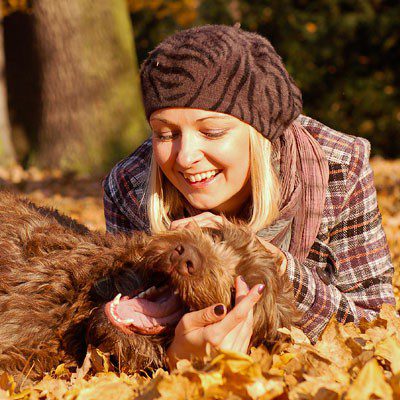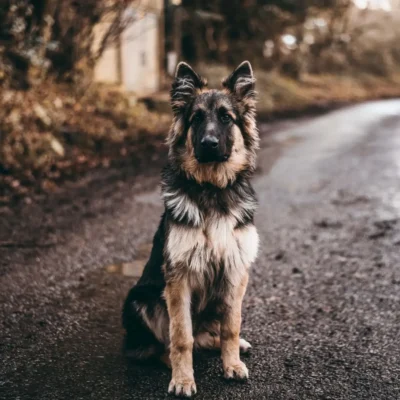As we welcome the cooler air, fresh breezes, and changing colors of autumn, remember that the season presents a few hazards for our four-legged friends. Keep your cat or dog safe from harm by avoiding these fall-time dangers:
Insecticides and Rodenticides
Since it’s getting colder, insects and small rodents like to venture inside our homes to seek warmth. Many homeowners use pesticides to rid their homes of these critters. Remember that these products are poisonous, not only to the pests they’re designed to kill but to our companion animals as well! Use these products with extreme caution, and make sure your pet can’t come in contact with the toxic chemicals.
Antifreeze
Some car owners choose to change their engine coolant in the fall months, right before the harsh winter takes hold. Antifreeze is highly toxic to pets thanks to its main ingredient, an alcohol called ethylene glycol. What’s worse, ethylene glycol has a sweet taste that will attract pets! Clean up all antifreeze spills immediately, and store the container on a high shelf where pets can’t reach. Keep your Chesapeake vet’s number close at hand to call in the event of any accidents.
Wild Animals
Autumn is prime time for certain wild animals to be active. Snakes are about to go into hibernation, so they’re extra grumpy and are more likely to bite. Other common critters like possums or raccoons can get into fights with pets, resulting in serious injury. Keep a close eye on your pet while they’re outdoors this fall—don’t let them wander off-leash into underbrush or any area where you can’t see them.
Wild Mushrooms
It’s true that the vast percentage of wild-growing mushrooms aren’t toxic, but it’s best to play it safe. Have your pet avoid all mushrooms—which experience peak growth in the fall and springtime—to make sure your pet doesn’t get poisoned. Ask your vet about other hazardous vegetation and fungi that may grow in your area.
Cold Nights
Don’t forget that nighttime during autumn can become quite cold! If your pet spends too long outside, especially at night, he or she may get too chilly. Bring your pet inside where it’s warmer.
Keep this season safe and sound for all pets—ask your Chesapeake veterinarian for more great seasonal health tips!









